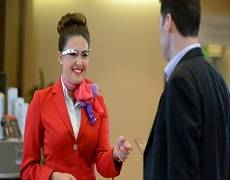March 4, 2014
By 2030 your colleagues could be old enough to be your great-grandparents
 By 2030 four-generation or “4G” workplaces – will become increasingly common as people delay retiring, even into their 80s. Although the role of women in the workplace will strengthen, an increasing divide will mean that while highly-skilled, highly-paid professionals will push for a better work-life balance, others will experience job and income insecurity. Technology will continue to evolve, pervading work environments everywhere, with many routine tasks becoming the domain of the smart algorithm. Multi media “virtual” work presences will become the norm, and as businesses seek additional flexibility, they will decrease the size of their core workforces, instead relying on networks of project-based workers. This is all according to the Future of Work, published this week by the UK Commission for Employment and Skills (UKCES). (more…)
By 2030 four-generation or “4G” workplaces – will become increasingly common as people delay retiring, even into their 80s. Although the role of women in the workplace will strengthen, an increasing divide will mean that while highly-skilled, highly-paid professionals will push for a better work-life balance, others will experience job and income insecurity. Technology will continue to evolve, pervading work environments everywhere, with many routine tasks becoming the domain of the smart algorithm. Multi media “virtual” work presences will become the norm, and as businesses seek additional flexibility, they will decrease the size of their core workforces, instead relying on networks of project-based workers. This is all according to the Future of Work, published this week by the UK Commission for Employment and Skills (UKCES). (more…)























February 13, 2014
Why do we bother going to work? Good question.
by Mark Eltringham • Comment, Facilities management, Flexible working, Workplace
(more…)